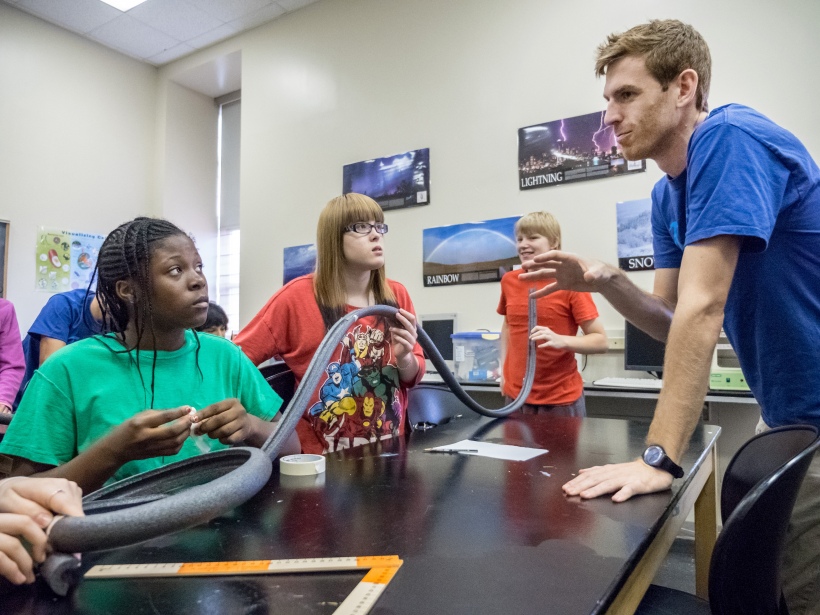News
Fellow Q&A: WW Teaching Fellow Brian Moshofsky
WW Teaching Fellows come from many different backgrounds but are united by a single goal: to teach science, technology, engineering, and math (the STEM fields) to some of the nation’s highest-need students. But what makes these Fellows tick? What inspired them to pursue a career in the classroom? In this WW Perspectives series, we hear from WW Teaching Fellows about what drew them to the program.
After receiving his Ph.D. in nanoscale science from Ben-Gurion University of the Negev in Israel, Dr. Brian Moshofsky decided to channel his love of chemistry and mentoring into a career in teaching. Dr. Moshofsky, or Dr. Mo as his students call him, was a 2014 New Jersey WW Teaching Fellow and is now a chemistry teacher at Orange High School (OHS) in Orange, N.J.
WW Perspectives: What drew you to teaching chemistry as a career?
Brian Moshofsky: Throughout graduate school, I felt most rewarded during the time when I was teaching or mentoring students. The feeling when I saw students succeed gave me greater joy than when I succeeded myself. Chemistry is a very challenging topic and the most interesting parts come at an advanced level. Thus, I wanted students to start developing a love of science and chemistry at a young age so that they might advance to appreciate truly amazing topics down the road.
WWP: Was there any reason you chose to attend Montclair State University?
BM: I chose MSU for two main reasons. The first was that it had a track record of working with urban schools and the program had a good reputation. The second reason was the proximity to New York, which is not only where my wife found a job, but was also an amazing cultural opportunity and a place I looked forward to living.
WWP: What do you think was the best preparation that you received for the realities of classroom teaching?
BM: Although I had a number of tremendous professors at MSU, the best preparation was the extensive classroom experience that I got through the yearlong teaching residency program. Starting my first year as a teacher in the same school where I had been a student teacher for the entire previous school year, I had the confidence and the experience that allowed me to weather the inevitable storms that first-year teachers are exposed to. This enabled me to work on developing my teaching and the culture of the school in a productive way.
WWP: What matters most to you about your students?
BM: I want my students to understand how skills they learn in science class are really life skills that will help them succeed in any area they pursue. For example, learning to evaluate which statement is more valid ’doesn’t matter only when looking at different atomic models, but also in deciding which college they should attend or how to get their family to live a healthier lifestyle. That is the emphasis I’m putting on our science fair projects this year, to show students how science and engineering connects to the things they already do and care about.
WWP: What’s the most rewarding part of the program so far for you?
BM: When I walk through the halls of OHS, I know a lot of students by name, even many who have not been in one of my classes. Students say hello to me and often ask me to attend various events or activities they are involved with. To me, this indicates that my attitude of caring and dedication to student self-improvement has resulted in a positive relationship for that student with school and their teachers. This is a good step toward their achieving their goals in life, and it makes me proud to be a part of that process.
WWP: What would you say to someone who’s considering becoming a Woodrow Wilson Teaching Fellow?
BM: This program is a very serious commitment. Not only will it challenge you in terms of time and effort, but you will be forced to confront things about yourself that will require you to grow and change as a person along the way. For me, this has been an incredibly rewarding experience that has changed my life for the better, but just as I tell my students, success does not come easily.
Interviews have been edited for length and clarity.


